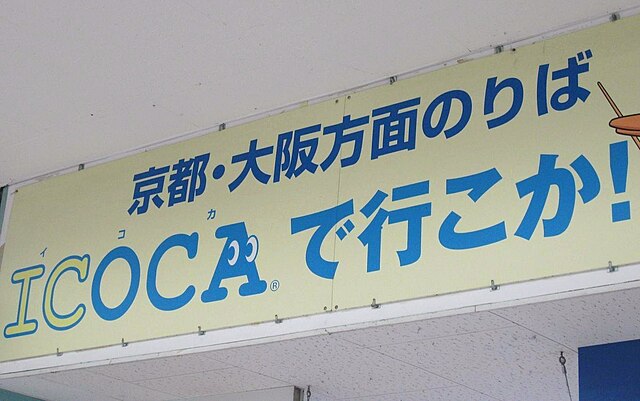Baka means "fool", or "foolish" and is the most frequently used pejorative term in the Japanese language. The word baka has a long history, an uncertain etymology, and linguistic complexities.
Mumashika depiction from the 1832 Hyakki Yagyō Emaki
The Kansai dialect is a group of Japanese dialects in the Kansai region of Japan. In Japanese, Kansai-ben is the common name and it is called Kinki dialect in technical terms. The dialects of Kyoto and Osaka are known as Kamigata dialect , and were particularly referred to as such in the Edo period. The Kansai dialect is typified by the speech of Osaka, the major city of Kansai, which is referred to specifically as Osaka-ben. It is characterized as being both more melodic and harsher by speakers of the standard language.
A label in Kansai dialect. The advertisement, Iwashi o tabena akan!, translates as "You must eat sardines!"
A poster written in Kansai dialect. The warning, Chikan wa akan de. Zettai akan de, translates as "Groping is out. Absolutely out."
A caution written in Kansai dialect. The warning, Kii tsuke yā, Anta no koto ya de, Sono baggu, translates as "Take care! Do not let your bag get snatched!"
A signboard written in Kansai dialect at Kusatsu Station in Kusatsu, Shiga. The message, ICOCA de iko ka!, translates as "Let's go with ICOCA!" ICOCA is a rechargeable contactless smart card. Its name is a play on the Kansai phrase "iko ka!" ("Let's go!").





